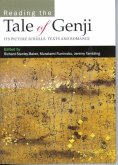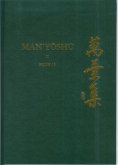The reconstruction of identity in post World War II Japan after the trauma of war, defeat and occupation forms the subject of this latest volume in Brill's monograph series Japanese Studies Library. Closely examining the role of fiction produced during the Allied Occupation, Sharalyn Orbaugh begins with an examination of the rhetoric of wartime propaganda, and explores how elements of that rhetoric were redeployed postwar as authors produced fiction linked to the redefinition of what it means to be Japanese. Drawing on tools and methods from trauma studies, gender and race studies, and film and literary theory, the study traces important nodes in the construction and maintenance of discourses of identity through attention to writers' representations of the gaze, the body, language, and social performance. This book will be of interest to any student of the literary or cultural history of World War II and its aftermath. Japanese Fiction of the Allied Occupation was awarded Choice Outstanding Academic Title 2007.
Hinweis: Dieser Artikel kann nur an eine deutsche Lieferadresse ausgeliefert werden.
Hinweis: Dieser Artikel kann nur an eine deutsche Lieferadresse ausgeliefert werden.








